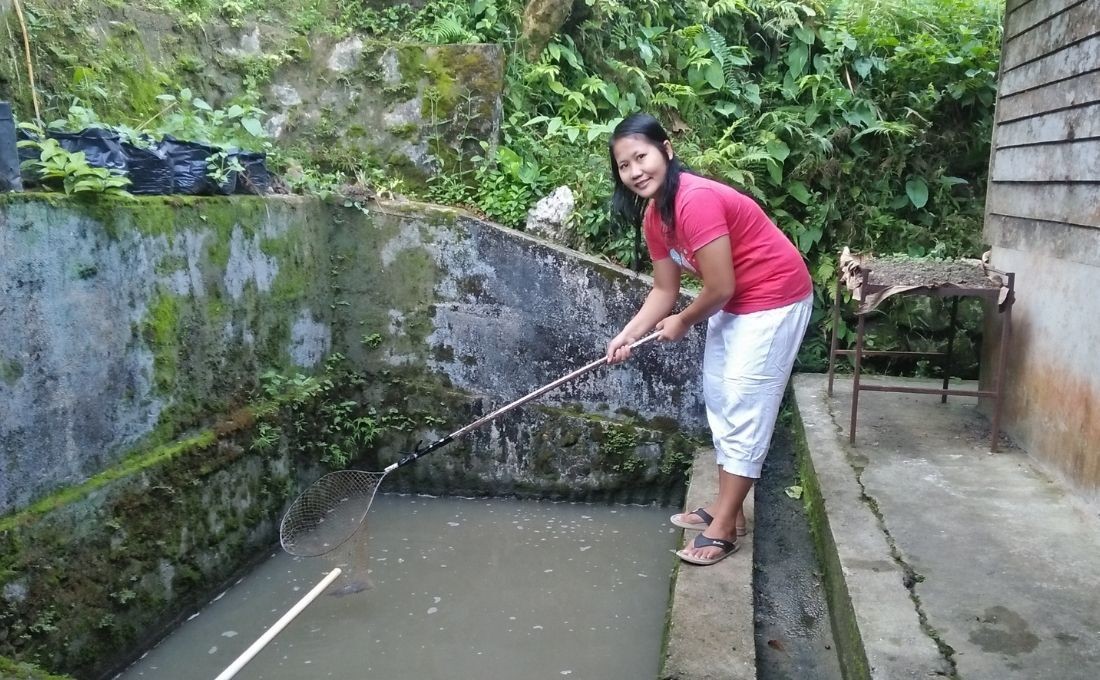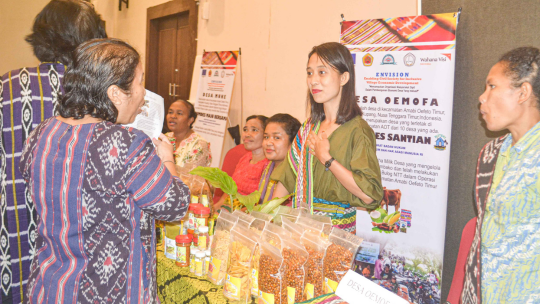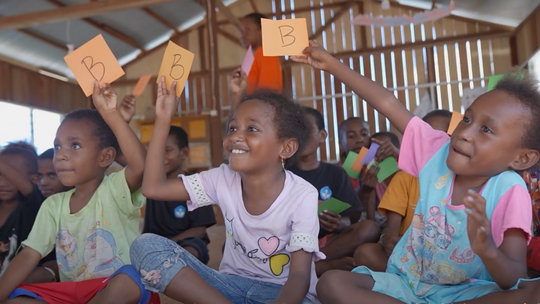Maintain Children's Nutritional Quality Through Family Nutrition Garden

To improve the nutritional status of children, Wahana Visi Indonesia (WVI) South Nias Program Area together with the Food Security Service conducted training on family nutrition gardens and catfish cultivation. The training aims to assist the community in providing vegetable and catfish seeds so the families can have food security and maintain child nutrition. Kesadari Nehe (29), or who is familiarly called Ina, a farmer, and mother of a toddler from Hiligito Village, is the one who implements a family nutrition garden at her home.
Ina and her family always persevere in activities by farming rice fields but the results from farming are often not able to meet the needs of the family. The distance of the rice field is also far from the house so that it is rather difficult for families to maintain their rice fields.
Ina then attended a training conducted by WVI with the South Nias Regency Food Security Service in March 2021. He also admitted that he felt the benefits of the training.
"I am very happy to participate in this training because it will be an opportunity to improve the nutritional status of children to be healthier and also to earn other income besides farming by utilizing the yard of the house," said Ina during the training.
In April 2021, Ina and other groups of mothers of toddlers began to practice the training. They build ponds and sow catfish seeds and vegetable plants with the results of the training. Unexpectedly, in May 2021, Ina and her group had tasted the harvest and immediately gave their children vegetables and catfish that had been produced.
Until now, Ina still practices the cultivation of catfish and plants. Ina is happy because now her children can get good nutrition through fish and vegetables. Ina admitted that her children rarely eat fish because of the family's economic situation during the pandemic.
"I am happy because children are getting healthier and smarter by getting sources of animal protein and sources of vitamins from vegetables, with the hope that in the future the children can continue to consume. I am also happy to see my children can get fish and vegetables that they rarely get," Ina hoped.
Written by: Juni Arman Hulu, TP Health Coordinator of Nias Selatan Program Area, Wahana Visi Indonesia



